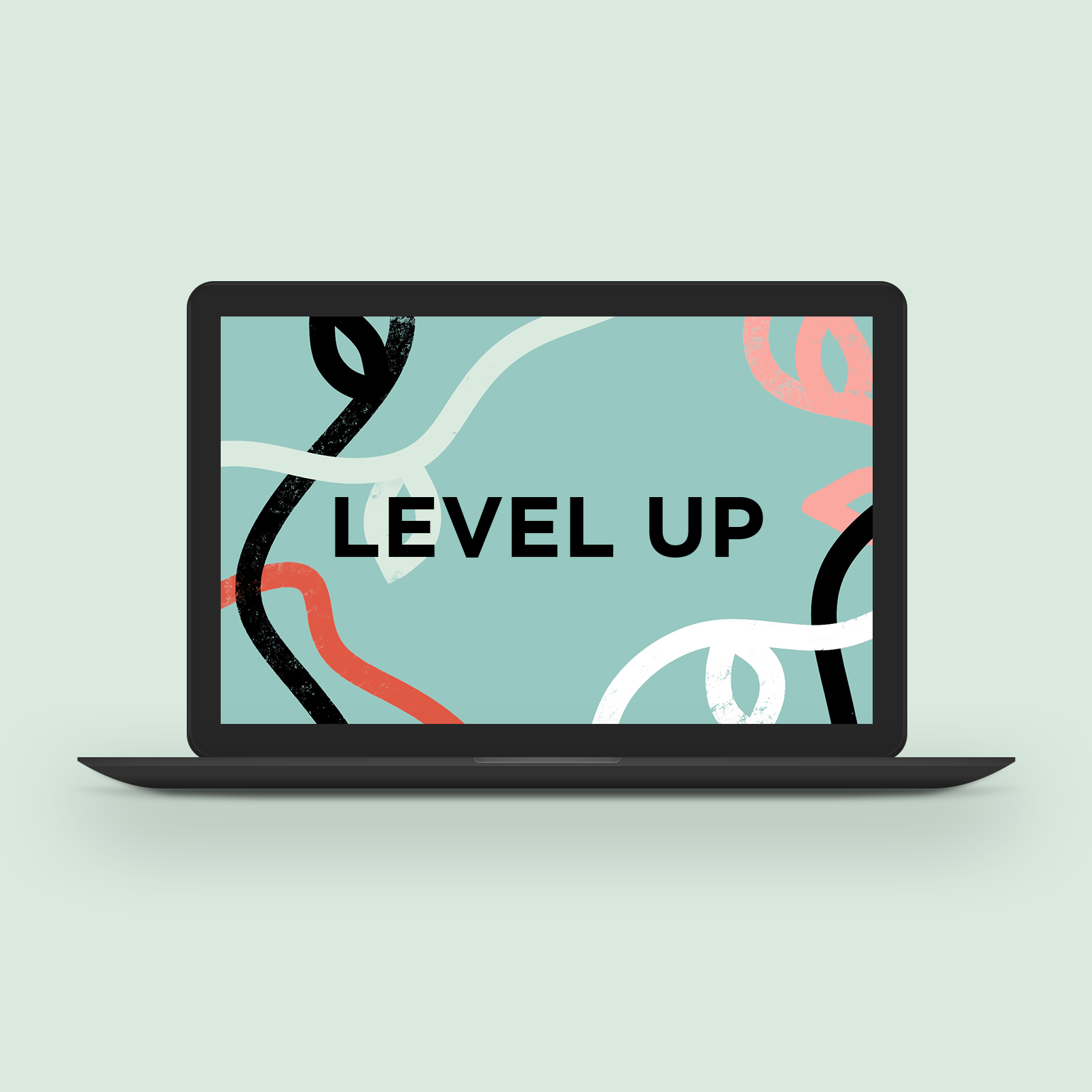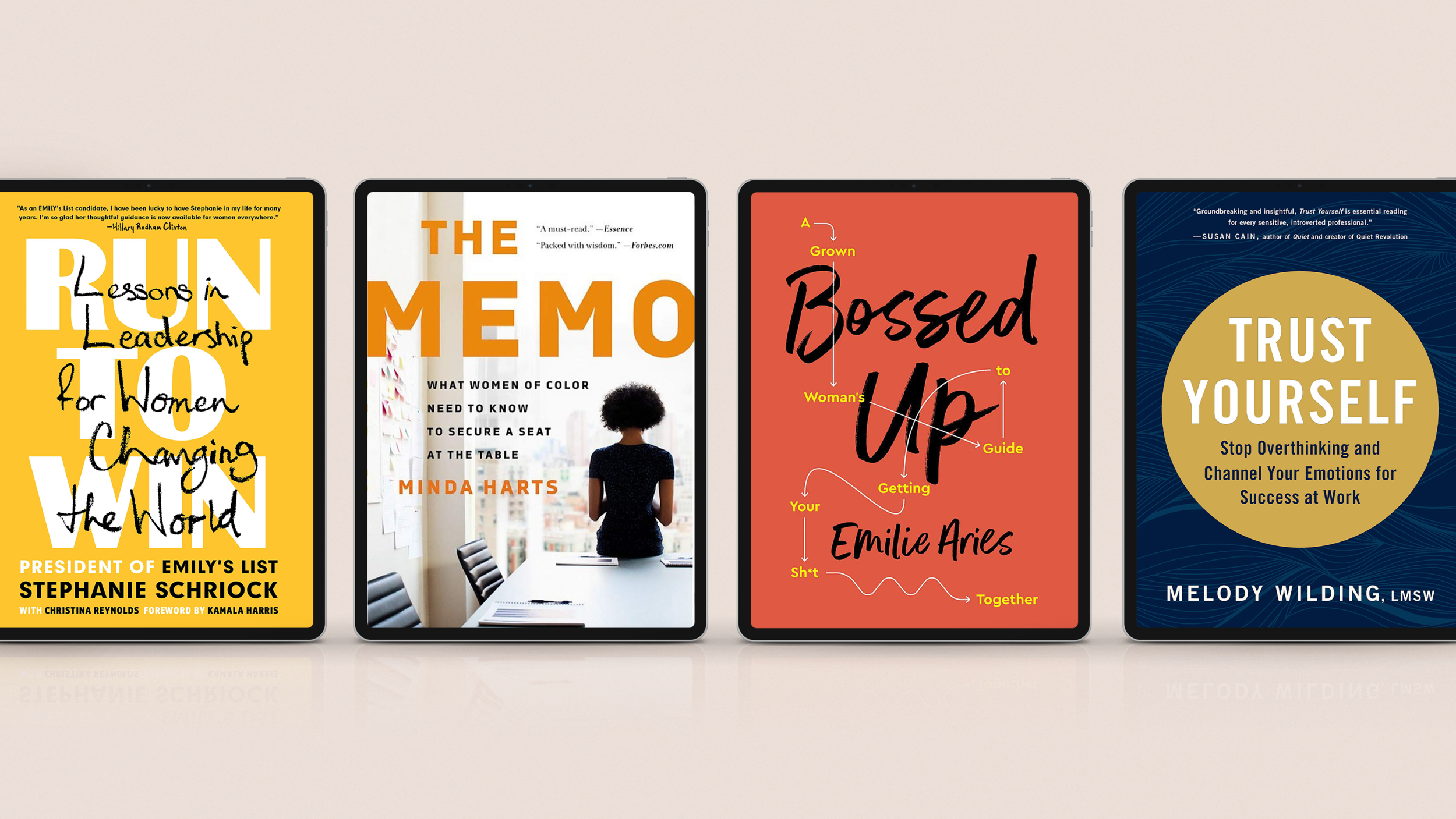Leadership Books I'm Reading Right Now
Ep 207 | Author: Emilie AriesReading is one of the absolute best things you can do to accelerate your career. Here are the books I’ve been reading lately to boost my leadership and management skills in particular.
1. Dare to Lead - Brené Brown
First is Dare to Lead by Brené Brown, which I finished at the end of last year and it has really informed how I'm managing the Bossed Up team this year.
I'm a big fan of Brené Brown, as I think a lot of people are for her pioneering work and storytelling prowess as it relates to her research on the power of vulnerability. She's really a shame researcher, but the flip side of shame has led her to become an expert in vulnerability and how that impacts relationships of all kinds.
Dare to Lead is her really focusing her vulnerability lens on the realm of leadership relationships - how to build trust, how to be courageous, how to take risks in a high visibility environment. That can be really hard because the reality is that the more you rise in the ranks in any organization, it feels like the higher you climb, the the farther you have to fall.
People become risk-averse. People become vulnerability-averse and think we have to command, control, and put on this tough armor.
Dare to Lead really helps push back on that concept. Her subtitle is Brave Work, Tough Conversations, Whole Hearts. Reading her book was like a management masterclass in an interactive way. I think the best stuff in this book was in the final third of the book.
I really enjoyed the actionable, practical, instructive takeaways that she offers not only through the book itself, but through the corresponding assets she has available on her website that you can download. I really like Brené Brown for the practical nature behind the concepts that she introduces in the book - especially if you are a leader and looking to motivate and connect with your team in a more authentic and deep way.
2. Leaders Eat Last - Simon Sinek
The second book that I am working on is Simon Sinek's Leaders Eat Last. Now I have to say I've been listening on Audible and I find his storytelling ability to connect with the key concepts that he's sharing to be really profound and really memorable and delightful. That being said, my only critique of this book is just it just goes on forever. I feel like this book is taking me forever to get through.
But my favorite part of his book thus far is the section called Leadership Lessons. That's where he really summarizes and gets to the heart of his philosophy of what could be termed servant leadership. He draws a ton of parallels from the military.
Even the title Leaders Eat Last alludes to the military's rank and order system, and how in every branch of the military the highest ranking officers are always the last to eat and how the petty officers and recruits and new new recruits are always the first to eat because the leaders are there to provide cover for their their team.
I really like the military references he uses because life and death is so clear - those teams need to be full of trust because the risks are so high. He really breaks down the importance of providing cover - ground cover, air cover, to make sure you're clearing the decks and clearing obstacles and covering your team's backs. That kind of integrity and trust is not an easy thing to build. It is an easy thing to break. The consequences of not having that level of trust and integrity in your leaders can be disastrous both in a life and death situation, but also just in an economic perspective.
He talks a lot about how corporate America lacks integrity these days and rewards bad behavior instead of true leadership qualities and how problematic that is for companies that were otherwise thought as built to last.
I want to mention that my love of cognitive science comes into play in a very big way with with his book Leaders Eat Last because he doesn't just talk about building trust and integrity, he talks about the hormonal responses in your brain and body that bind you together. The kind of dopamine response that you get by achieving tasks and how that can be a helpful motivator, but also he talks about the endorphins that help us mask pain when we're moving towards a goal together that requires resilience and grit.
It's a fascinating take that he doesn't just talk about leadership theories, he connects it to how we are biologically wired for connection - for group management and leadership. And I think that's part of the best components of this book as well, is understanding how we are historically and psychologically and neurologically wired for group dynamics and leadership characteristics.
3. Radical Candor - Kim Scott
Now, finally, I want to share a little bit about Kim Scott's book that I'm just beginning and it's become quite the phenomenon. I don't know if you've heard of this before, but it's both a New York Times and Wall Street Journal best selling book. It's called Radical Candor: Be a Kick Ass Boss Without Losing Your Humanity, which I think we can all agree is a delightful thing to aspire to.
What I really like about her book is that it is focused on being a good boss. I think a lot of management books have this sort of underlying premise which is read this and you'll get more done. I like Kim Scott's framing of this book, which is how to use empathy and radical candor to be a better, more authentic human and, basically, do away with what she calls manipulative insincerity and obnoxious aggression, which sounds pretty great.
I'm excited to read Radical Candor. I will update you as I do, and I'd love to hear from you if you've read this book already - what you found most useful about it.
That is what is on my leadership or reading list this time of year. What is on the docket for you? How are you developing your leadership skills this year? How are you focusing on management or supporting yourself and your teams or supporting and furthering your career goals? I'd love to hear from you in the comments section below.












